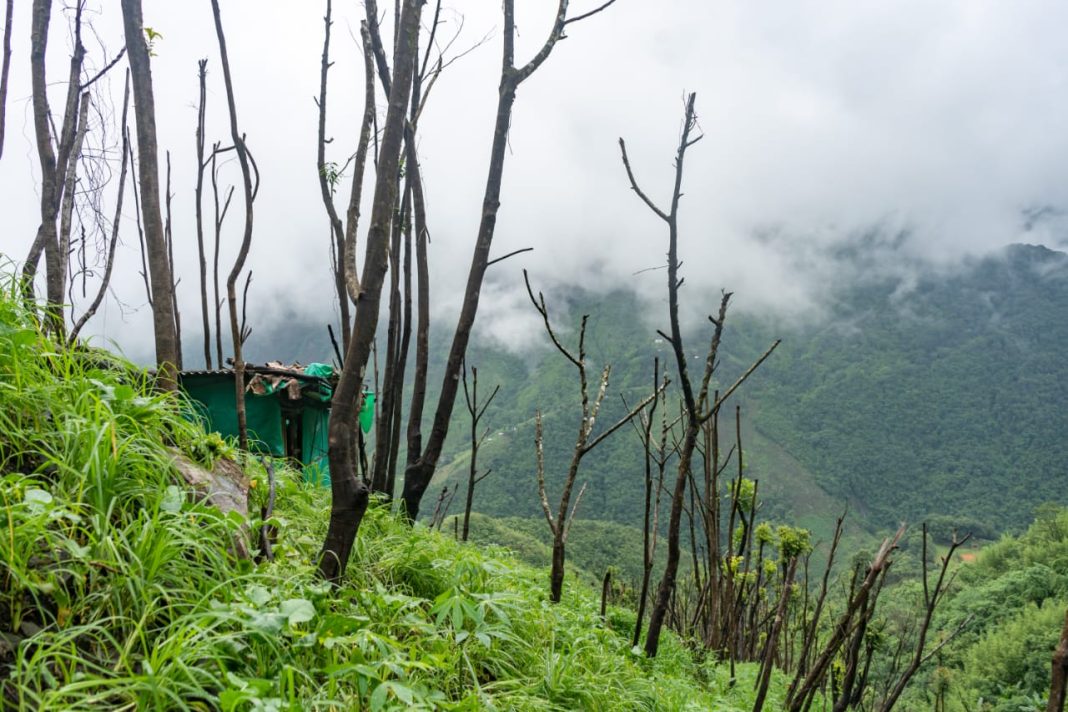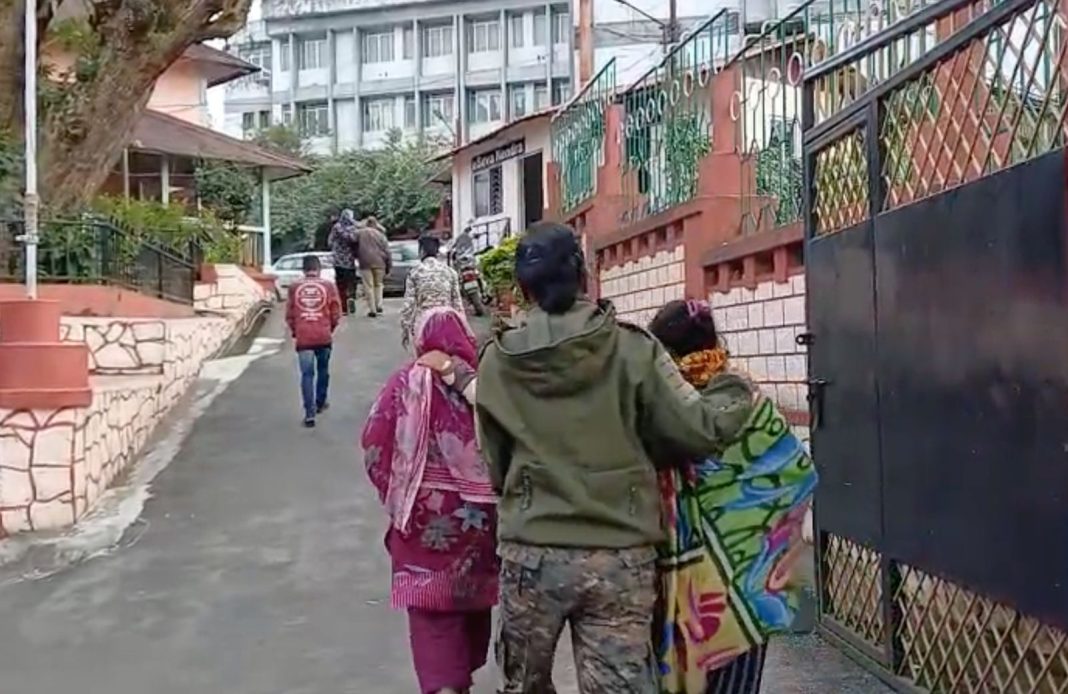Guwahati, Oct 28: A village under Laitkroh block in East Khasi Hills has emerged as a living example of how climate resilience initiative can start at the grassroots.
With only 242 people, Tyniar village tucked deep in Khatarshnong area under Laitkroh block has access to roads. But the indigenous Khasi community has resorted to exemplary acts of restoring forests and water sources of the village.
The people of Tyniar recently joined hands with the North East Society for Agroecology Support(NESFAS), The Nature Conservancy (TNC), and the Meghalaya State Biodiversity Board (MBB) to upgrade their People’s Biodiversity Register (PBR) — a living document that records local biodiversity, traditional knowledge, and sustainable practices.
Through this participatory process, villagers identified a new priority under their People’s Plan for Life and Management of the People’s Perspective Landscape Management Plan (PPLMP) — protecting two critical water sources, Umthli and Wah Dymmiew, which have begun showing signs of stress due to erratic rainfall and deforestation.
In response, the Dorbar Shnong led the community in a large-scale tree plantation programme hed recently in the Umthli catchment. Together, they planted 208 saplings, including Alder (Diengliengiong), Pipli (Diengdoh), Chinquapin (Diengsohot), Acacia, and Sohmassar. Each species was chosen for its ecological role — Alder enriches soil and enhances groundwater, while Chinquapin stabilises slopes and improves water retention.
“We realised that our catchment areas needed more trees. Every sapling we plant is a step toward a healthier, more sustainable future,” said Donbok Sohkhlet, the village headman.
The initiative marks a rare example of a remote community using biodiversity documentation to drive climate action and water security. “When we plant trees, we do it not only for ourselves but for our children,” said Aiborlang Khongsit, a community member. “They give us shade, water, and clean air — a gift for the future.”
Supported by the Social Forestry Division, Sohra Range, the plantation is part of a broader push by indigenous communities across Meghalaya to link traditional knowledge with scientific conservation. The upgraded PBRs — covering over 200 villages — are helping local councils design plans for forest regeneration, water conservation, and sustainable agriculture.
In Tyniar, villagers now regularly monitor the saplings, clean the plantation site, and enforce community rules against tree cutting near water sources. The message is clear: even the most remote communities are stepping forward as custodians of nature in the face of climate uncertainty.For a village that can be reached only on foot, Tyniar’s journey toward ecological self-reliance is a powerful reminder that the path to sustainability often begins where the road ends.




